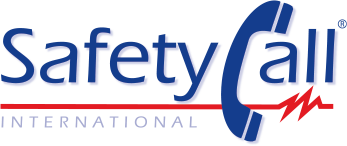SafetyCall International is a triple licensed health care practice by the boards of medicine, veterinary medicine, and pharmacy. Our mission is to make the world a safer place for our clients, their customers, animals, and pets. In order to support our animal health clients and pet owners alike will be continuing to share relevant information as it relates to animal health during these unprecedented times.
Lisa Martin, DVM
Associate Veterinarian
With the Coronavirus (COVID-19) spreading quickly around the globe, everyone is doing their part to keep their homes and workplaces as clean as possible. As a result, pets may be unintentionally exposed to household cleaning products. While many of these products are benign, there are some that may result in serious symptoms. One of the most common injuries we see with these products is corrosive injury or chemical burns. Most injuries happen when the product comes in contact with the skin, eyes, or is tasted or swallowed. We can even see injuries occurring when animals inhale the fumes or the aerosolized spray of some products. The following is a list of common household cleaners and the dangers they may pose to your pet.
- Bleach: Small exposures to regular strength household bleach, such as a pet walking through a puddle on the floor, may result in irritation to the skin and bleached/damaged fur. Thorough rinsing of the feet is important to remove any bleach trapped in the toe webs or between the foot pads. Dermal exposure often leads to ingestion because animals will self-groom and lick the bleach off. Ingestion can lead to vomiting and stomach irritation which, depending on the amount ingested, may need veterinary treatment. If bleach gets in the eye, this can be an emergency (for people and pets). Immediate flushing of the eye may be needed to slow damage to the cornea (the very thin outer layer of the eye). Any animal with ocular exposure should be examined by a veterinarian. Your vet may apply a stain to the surface of the eye that binds to damaged cells. If damage has occurred, treatment is likely needed. Concentrated or “ultra” bleaches may be corrosive (cause chemical burns) so extra caution needs to be taken with those products. Also, never mix bleach with other chemicals! Mixing chlorine bleach with ammonia can produce toxic chloramine gas which is corrosive to the lungs.
- Isopropyl Alcohol: Ingesting isopropyl alcohol (also called rubbing alcohol and isopropanol) can cause poisoning in pets resulting in symptoms such as drunkenness, , low blood sugar (especially in small and young pets), stomach upset, slow heart rate, low blood pressure, acid/base disturbances in the blood, and difficulty breathing. Rubbing alcohol is twice as toxic a ethanol (the alcohol in beer and wine) to dogs.
- Hydrogen Peroxide: Often found in cleaning and disinfecting products, exposure to hydrogen peroxide may result in skin and eye irritation/damage, vomiting, damage to the stomach lining, and sometimes air emboli in the blood vessels. The common 3% household strength concentration is occasionally used to induce vomiting in dogs but is only safe at correct doses and only in specific cases. Do not give hydrogen peroxide to a dog without consulting Pet Poison Helpline or a veterinary professional. Never use hydrogen peroxide to induce vomiting in cats as this could lead to fatality. Concentrations greater than 3% can be corrosive to all tissues.
- Quaternary ammonium compounds: Found in some disinfecting wipes and sprays, quaternary ammonium compounds (or “quats”) can cause corrosive injury to any tissue they contact. Cats are especially sensitive to these compounds, even at very low concentrations.
- Phenols: Found in everything from toilet bowl cleaners to all purpose cleaning sprays, these products can be corrosive if they contact the skin and eyes or if they are swallowed. They can also cause corrosive injury to the lungs if inhaled.
How to keep you pet safe when cleaning: It’s simple! Keep your pets out of the room when cleaning, especially if using an open mop bucket. Discard paper towels that are wet with cleaner or sanitizing wipes in covered trash cans. When cleaning the bathroom, keep the doors closed (and windows open!). In case of spills, quickly crate pets or secure the area to avoid accidental exposure.
As with any possible exposure to a cleaning product, we recommend that you contact Pet Poison Helpline or your veterinarian immediately for assistance.
The moral of the story is, people should be reading labels, even if the use of a product seems obvious. It’s better to take the extra time and be safe than save a few seconds and end up at the doctor’s office (or worse)!
Dr. Lisa Martin joined SafetyCall International in 2019. She received a BS in Animal Science from the University of Tennessee and a Masters and Doctorate of Veterinary Medicine from the University of Missouri. After graduation Dr. Martin worked as an equine vet before moving to small animal emergency where she spent 5 years. For the last 6 years she has been working in small animal private practice. Dr. Martin live in Middle Tennessee with her partner James, dog Hanna, and cat Micah.


